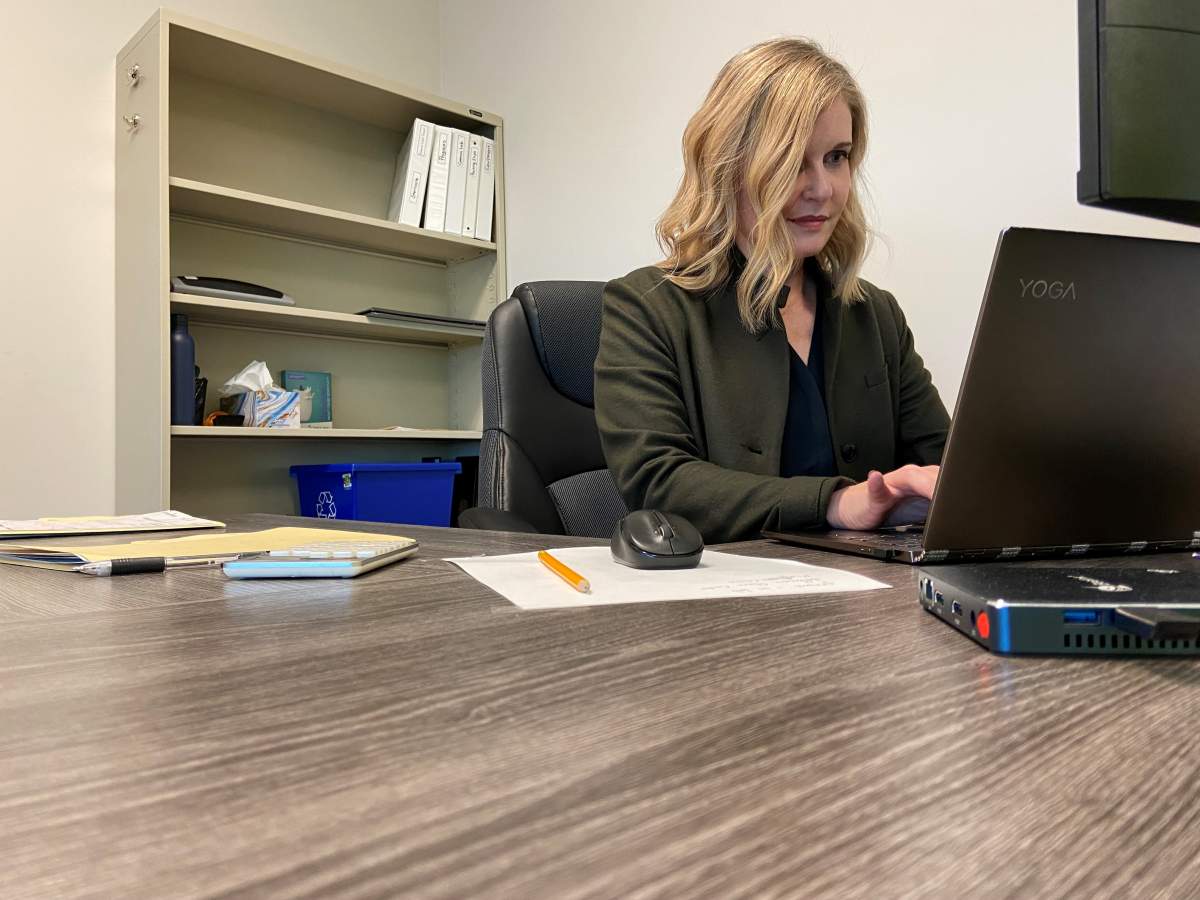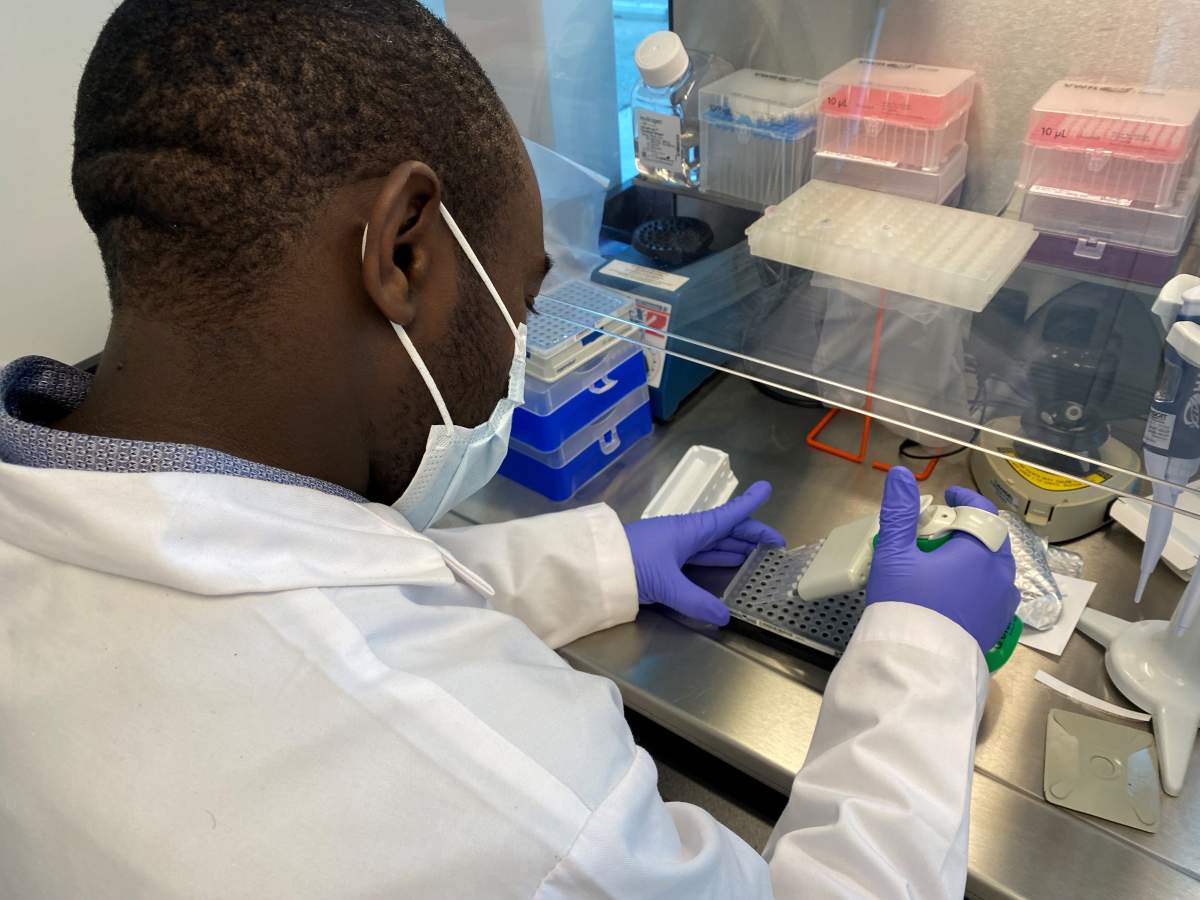Cutting edge technology in a Calgary lab is changing the way cancer is recognized with a simple blood test.

University of Calgary professor of biomedical engineering Tina Rinker led the research.
The clinical studies on hundreds of women detected breast cancer at either stage 1 or stage 2.
“There are places around the world that have done a lot of research, but this is the first blood test able to detect early stage breast cancer in women,” Rinker said.
Jacquelyn DeGreeve is one of the first patients to take the blood test designed to look for early signs of breast cancer. The 48-year-old was waiting and worried after a routine breast exam found something suspicious.
“I proceeded to wait seven and a half weeks between the time they found something and when I was able to get in for further tests. There was a lot of stress and anxiety,” DeGreeve said.
It compelled her to search for another option beyond her mammogram.

Get weekly health news
“I know what the numbers are and at my age it’s top of mind,” De Greeve said. “I need to be an advocate for my own health and this was an added way to do that.”
She got those assurances with a negative result after the blood test. Syantra is processing the results, looking for a unique biomarker signature.
Syantra CEO Bob Shepherd said it’s exciting to be a part of this innovation.
“This was the crazy idea about taking the work from Tina’s lab at the U of C and turning it into a product that can impact breast cancer patients,” Shepherd said.
For now, patients need a signed requisition from their physician. The test is private and comes at a cost, but most health spending accounts will cover it.
“That was the fastest path to get it to market and there’s a long way to go to expand access to everyone and be taken up by health care systems, but we are actively engaged in that,” Shepherd said.
“You may think we already have mammograms, why do we need another tool?” Rinker said. “A lot of women are not getting their mammograms and this provides a tool in early stages screening for breast cancer.”
The team has partnered with a mobile medical lab service, TapLabs to provide results within five days.
Kelly Kuzel is the company co-founder and said they’ve modernized the way lab tests are administered.
“What we observed is a lot of patients experience significant wait times at community laboratory and we wanted to create a solution that would expedite access to diagnostic lab testing,” Kuzel said.
The hope is the blood test for breast cancer is only the beginning.
“We can apply a similar approach for other cancers,” Shepherd said. “We created a platform and breast cancer is first test and we will be working in the coming years adding additional cancer tests to the same platform.”










Comments
Want to discuss? Please read our Commenting Policy first.